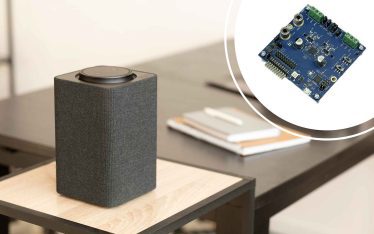Desktop application development is the process of building software programs that run natively on desktop operating systems such as Windows, macOS, and Linux. Unlike web apps, desktop apps offer greater performance, offline functionality, and direct integration with device hardware and peripherals – making them the preferred choice for enterprise solutions, gaming utilities, and custom device software.
Why invest in custom desktop software? Businesses rely on desktop applications when they require high performance, security, robust local processing, or tight hardware integration. Whether you’re creating productivity tools, enterprise utilities, or controller interfaces for custom devices, native or cross-platform desktop apps offer a reliable and responsive user experience.
These applications can be categorized by their development approach:
At Developex, we excel in delivering custom desktop application development services that provide businesses with powerful, secure, and highly efficient software solutions. With over two decades of dedicated experience, we transform your unique vision into high-performance desktop applications meticulously crafted for your specific operational needs and user demands.
Our development teams specialize in both native desktop apps and cross-platform desktop software, delivering high-performance solutions tailored to specific industries and user needs.
At Developex, our comprehensive desktop application development services cover the full spectrum of your needs, from initial concept to deployment and ongoing support. We specialize in building reliable, secure, and high-performing applications tailored to diverse operating systems and business requirements.
Tailoring unique desktop applications to solve your most complex business challenges, from data management and specialized industry tools to enterprise solutions like internal tools, CRM systems, ERP integrations, and business intelligence applications
For projects demanding peak performance, deep system integration, or platform-specific features, we develop native applications using technologies like .NET (WPF/WinForms) and C# for Windows, Objective-C for macOS, and C++ with platform-specific frameworks for Windows and Linux.
Maximize your reach and reduce development costs with applications designed to run seamlessly across Windows, macOS, and Linux. We leverage powerful frameworks such as Qt/QML, C++, Electron, and Rust-based toolkits (Tauri, Iced, Slint) to deliver consistent functionality, high performance, and a unified user experience across multiple operating systems.
Breathe new life into your existing desktop software. We help businesses upgrade outdated applications, enhance their functionality, improve user interfaces, and integrate them with modern systems, ensuring continued relevance and efficiency.
Seamlessly connect your new or existing desktop applications with other business systems, databases, cloud services, and hardware devices to create a unified and efficient ecosystem.
Our focus isn't just on functionality; we prioritize intuitive and engaging user experiences. We design user interfaces that are clean, efficient, and enjoyable to use, ensuring high adoption rates for your custom desktop software.
Providing ongoing support, updates, bug fixes, and performance optimization to ensure your desktop applications run smoothly and securely.
If you require only Windows platform support .NET (WPF or Winforms) is often the technology choice for this matter. C# is the most popular programming language for this framework. UWP is a comparatively new technology for Windows.
The purpose of Universal Windows Platform (UWP) is to help develop universal apps that run on Windows 10, Windows 10 Mobile, Xbox One and HoloLens without the need to be re-written for each platform.
ObjectiveC and also Cocoa are the most popular programming language and framework for MacOS. Technologies for Cross-platform software development that are also supported on Windows are described below.
C++ is the most popular programming language for native application development for Linux. Technologies for Cross-platform software development that are also supported on Windows are described below.

The Client initially partnered with Developex as a growing startup. We provided full-cycle support, including firmware development, desktop software, UI/UX design, and process consulting.

This app is Windows application that allows user to monitor and control work of different hardware: PSU, Liquid Coolers, Fan and LED controllers, DRAM lightnings and HW including MB, CPU and GPU parameters.

Dimenco, a global provider of 3D & VR solutions, required a specialized Crosstalk Measurement Tool (CMT) for internal research purposes. The tool aimed to assess the quality of 3D displays
While our capabilities extend beyond these sectors, explore the areas where we have accumulated proven experience.
At Developex, we offer a comprehensive suite of software development services to support your entire digital ecosystem:
Native iOS and Android application development, cross-platform mobile solutions.
Seamlessly integrating our skilled developers into your existing teams to scale your capacity.
Guiding you from initial concept to a well-defined product roadmap.
Ongoing assistance to ensure the smooth operation of your applications.
Full-stack web application development, custom web solutions, and enterprise portals.
Designing and implementing software for specialized hardware and IoT devices.
Comprehensive testing services to ensure the reliability, performance, and security of your software.
Modernization, maintenance, and support for your existing software systems.

















We specialize in developing a wide range of custom desktop applications, including:
We develop applications for Windows, macOS, and Linux using frameworks such as .NET, Electron, Qt, C++, and Rust (for high-performance modules or cross-platform app cores). We also build platform-independent apps with cross-platform tools when multi-OS support is required.
We work with Electron, Qt/QML, Flutter, React Native (for mobile/desktop), and Xamarin. These frameworks allow us to build apps with a shared codebase that runs smoothly across operating systems, reducing time and cost.
Yes. We have extensive experience building desktop apps that interface with hardware, including but not limited to USB devices, Bluetooth peripherals, and HID-compliant products. We handle custom drivers, firmware protocols, and device integrations.
Yes. We help implement reliable installation packages, auto-updates, and version control strategies. This ensures smooth deployment and maintenance for end users across different platforms.
Our developers optimize application performance with efficient code, memory management, and appropriate threading or task scheduling. We also conduct stress testing and profiling to ensure stability under various conditions.
Yes, we provide documentation for desktop and cross-platform applications, including installation instructions, architecture overviews, and feature documentation. Business analysts are available to support the process if needed.
Project duration depends on the supported platforms, complexity, and architecture. We provide an estimated timeline during the discovery phase and refine it as requirements become clear.
Have questions, need assistance, or eager to discuss your next project? Contact us today. Our team at Developex is ready to engage, collaborate, and transform your ideas into innovative solutions. Let’s start the conversation for your software success.
© 2001-2025 Developex